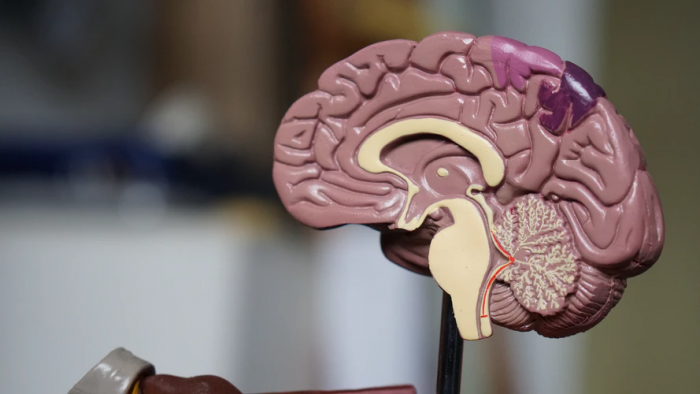Our body is home to trillions of microorganisms. Contrary to what we’re used to thinking, the vast majority of bacteria are not detrimental to our health and are, in fact, imperative to our survival and well-being. The community of microorganisms that colonizes our body is called the human microbiome.
In recent years, scientists have begun to notice a link between the microbiome and mental health, reporting that bacteria in our gut can have a relevant impact on our brain.
But how is this possible? Communication between the intestines and the brain is done through a series of mechanisms referred to as “the gut-brain axis”. The gut-brain axis consists on the bidirectional communication between these organs, which is established through nervous stimuli and neurotransmitters. It is thought that bacteria in the gut communicate directly with the brain through the stimulation of the vagus nerve, which runs through the human body from the brain to the abdomen, and indirectly through the production of neurotransmitters (dopamine, serotonin, among others) and other microbial metabolites (such as short-chain fatty acids). Bacteria are also capable of interacting with our immune and endocrine systems. When a dysbiosis of the microbiome occurs, meaning when there is an imbalance of the bacterial community with proliferation of harmful bacteria and deficit of beneficial bacteria, this interaction can lead to a generalized inflammatory state and can induce the production and release of stress hormones, such as cortisol.
There are several reviews available on the literature compiling the studies done on the link between the microbiome and human health in humans, such as Groen et al. and Järbrink-Sehgal et al. (1, 2).
Major Depressive Disorder seems to be associated with a dysbiosis of the microbiome. Several studies report an increase in the abundance of typically pathogenic bacteria, such as those belonging to the Proteobacteria and Firmicutes phyla, and a decrease in beneficial bacteria, such as Bifidobacterium (3, 4, 5).
The microbiome also seems to impact Anxiety disorders, with pathogenic species of Bacteroides and Escherichia-Shigella being more abundant, and Bifidobacterium being scarce (2, 6).
Autism spectrum disorder also seems to be associated with a dysbiotic microbiome, with proliferation of several species of Clostridium and Proteobacterium, and a depletion of Bifidobacterium (7, 8, 9, 10).
You can read the reviews for more results (1, 2).
Due to the novelty of this research field, there aren’t many studies available on the topic, which is expected to change given the gut-brain axis has been gaining a lot of attention from the scientific community.
If you found this information interesting, don’t miss the opportunity to be a participant in our study!
- Groen, R. N., de Clercq, N. C., Nieuwdorp, M., Hoenders, H. J. R., & Groen, A. K. (2018). Gut microbiota, metabolism and psychopathology: A critical review and novel perspectives. Critical Reviews in Clinical Laboratory Sciences, 55(4), 283–293.
- Järbrink-Sehgal, E., Andreasson, A. (2020). The gut microbiota and mental health in adults. Current Opinion in Neurobiology, 62, 102–114.
- Lin, P., Ding, B., Feng, C., et al. (2017) Prevotella and Klebsiella proportions in fecal microbial communities are potential characteristic parameters for patients with major depressive disorder. J Affect Disord, 207:300–304.
- Jiang, H., Ling, Z., Zhang, Y., et al. (2015) Altered fecal microbiota composition in patients with major depressive disorder. Brain Behav Immun, 48:186–194.
- Aizawa, E., Tsuji, H., Asahara, T., et al. (2016) Possible association of Bifidobacterium and Lactobacillus in the gut microbiota of patients with major depressive disorder. J Affect Disord, 202:254–257.
- Chen, Y.H., Bai, J., Wu, D., Yu, S.F., Qiang, X.L., Bai, H., Wang, H.N., Peng, Z.W. (2019) Association between fecal microbiota and generalized anxiety disorder: severity and early treatment response. J Affect Disord, 259:56-66.
- Song, Y., Liu, C., Finegold, S.M. (2004) Real-time PCR quantitation of clostridia in feces of autistic children. Appl Environ Microbiol, 70:6459–6465.
- Parracho, H.M., Bingham, M.O., Gibson, G.R., et al. (2005) Differences between the gut microflora of children with autistic spectrum disorders and that of healthy children. J Med Microbiol, 54:987–991.
- Son, J.S., Zheng, L.J., Rowehl, L.M., et al. (2015) Comparison of fecal microbiota in children with autism spectrum disorders and neurotypical siblings in the Simons simplex collection. PLoS One, 10:e0137725.
- Kang, D., Adams, J.B., Gregory, A.C., et al. (2017) Microbiota transfer therapy alters gut ecosystem and improves gastrointestinal and autism symptoms: an open-label study. Microbiome, 5:10.


